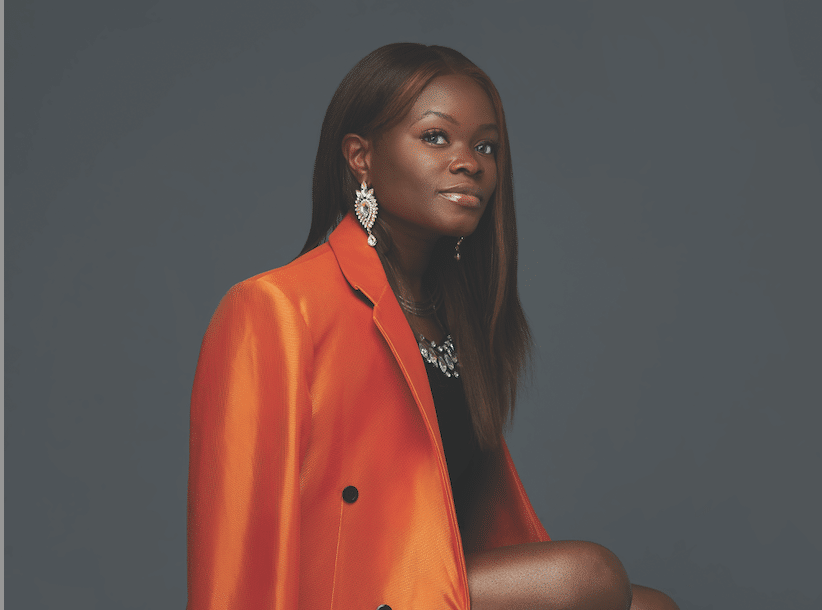Starting with just $45, Ghanaian entrepreneur Violet Amoabeng’s startup has progressed with skincare products you can eat and the unpalatable realization that the only way to make it in business is to crash, break, stretch and succeed.
IT WOULD BE HARD TO decide if you would place Violet Amoabeng’s products in the beauty cabinet or on the kitchen shelf.
Skin Gourmet, Amoabeng’s skincare range, uses natural raw materials that are pure and free of preservatives that you could use on your skin and eat at the same time.
Edible beauty?
“If you cannot eat what you are putting on your skin, then why put it on your face?” asks the Ghanaian entrepreneur who admits to always gravitating towards the unconventional.
“It made more sense because what I wanted to create was something you could either choose to eat or wear, either way it is good for you.”
She launched Skin Gourmet Limited with only $45 five years ago, but it is now a business that generates over $200,000 annually.
“My dad would not give me the money to do any business because he believed that if you don’t do business the hard way, you will not be able to survive when you hit hard times and no one will help you,” recalls Amoabeng about her journey to becoming a self-made businesswoman.
She had to think differently.
Even as a child, when her classmates were debating careers as doctors, bankers or lawyers, Amoabeng opted for poetry, when she could have easily thought of following in her parents’ footsteps.
Her father, one of Ghana’s most successful bankers, is the founder of UT Bank, and her mother was the Managing Director of the Ghana tourist board where her primary focus was social and human development.
“My dad was more of a dreamer and even though his mind was on profitability he wanted to build something that everyone would benefit from. My dad and my mum were more focused on me being a good person and they were not focused on a specific industry. They just allowed me to dream. It was more important that I would leave a good legacy. It was almost like they are responsible for how their children will affect the world.”
Amoabeng now understands just how powerful that upbringing was. Even after her parents’ divorce when she was still young, she was never separated from this goal of adding value to humanity.
Shuttling between Ghana, Uganda and Canada in her teenage years, she graduated with a marketing and business administration degree from the University of Northern Virginia before completing her masters in accounting and finance as well as in supply chain and logistics.
Her initial work experience was in her father’s bank before securing an internship with the African Development Bank in Tunisia.
“At the time, I wanted to take over my dad’s business. As life would have it, that didn’t work out but I still wanted to help people and I knew business is how to do it, but I didn’t know how it would look like,” says Amoabeng.
Her biggest challenge was acquiring capital to kick- start her business.
“I asked family members to help source ingredients etc. I would come back from work and the first formulation I made I got these three ugly containers from my mother. I had designed my logo and everything on my computer. So, I would manufacture, package, label, put it on the shelf and every Saturday I would go to the market to sell these products.”
Being from Ghana proved to be advantageous for her fledgling startup.
“I started to really focus on Ghana because even the idea of eating your skincare [ingredients] is something I realized Ghanaians used a long time ago but we have lost [that tradition]. When I go to source my ingredients, these are products that the local communities eat on a daily basis and it’s been done for a long time. Preservatives are not needed because these communities have not had electricity for a long
time so they had a way to preserve the products and keep it [to] the highest qualities.”
To get people to try her products, Amoabeng would give them away for free.
Her father’s lesson in the business of not expecting “any handouts from anyone” started to pay off.
“My dad also started his company with almost nothing and he knew he had to struggle. In my dad’s mind, it is important to struggle because it is the struggle that makes you strong and innovative.
“I started with the love of making body butter without doing any research. The entrepreneurial journey has been crazy hard. It will crash you and it breaks you and stretches you but you enjoy it. When you see an obstacle and it’s hard but every time you find a way over it and that is what makes it incredible. With every stage you overcome, you become a little bit greater,” offers Amoabeng as advice to aspiring entrepreneurs.
Amoabeng has managed to transform Skin Gourmet into
a successful startup story with an average revenue growth of 80%. What makes this remarkable is the fact that this has been achieved organically with no outside investment or bank loans.
And with that, she has learned her greatest lesson in business.
“I had a limited way of thinking and I had to retrain myself on how to think. Nothing is impossible, everything is possible and if you can’t do it, it is your fault. You never blame anybody for anything that happens to you.”
